Recent news and events.
News & Updates
2025 Research Symposium
April 4, 2025
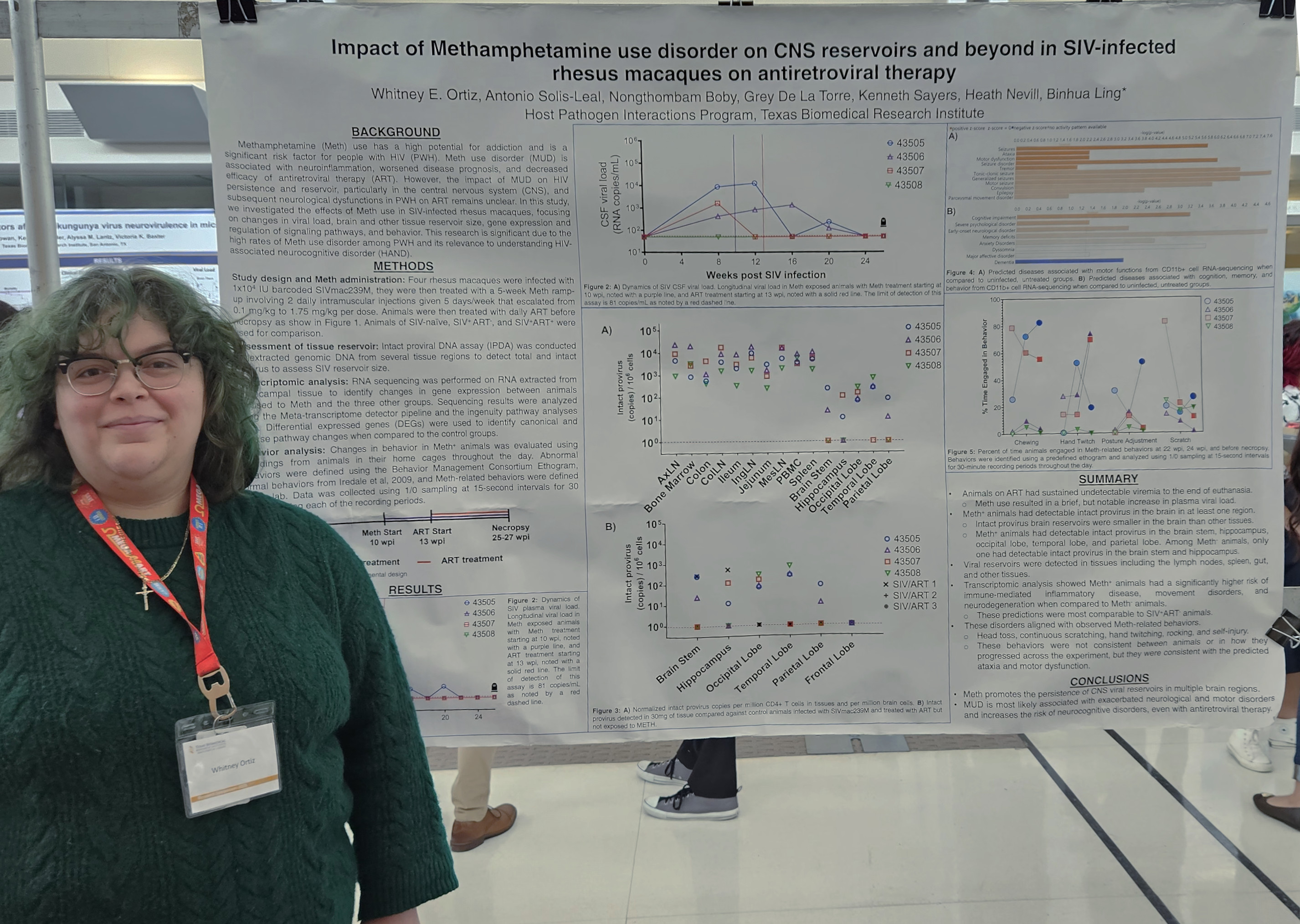 The Ling Lab's graduate student Whitney Ortiz was awarded 1st Place in the Best Poster - Graduate Student category at the Texas Biomed Research Symposium.
The Ling Lab's graduate student Whitney Ortiz was awarded 1st Place in the Best Poster - Graduate Student category at the Texas Biomed Research Symposium.
The 2025 Texas Biomed Research Symposium provided a fantastic opportunity to share the vast array of scientific research taking place across campus.
Congratulations, Whitney!
#IAmTexasBiomed
September, 2024
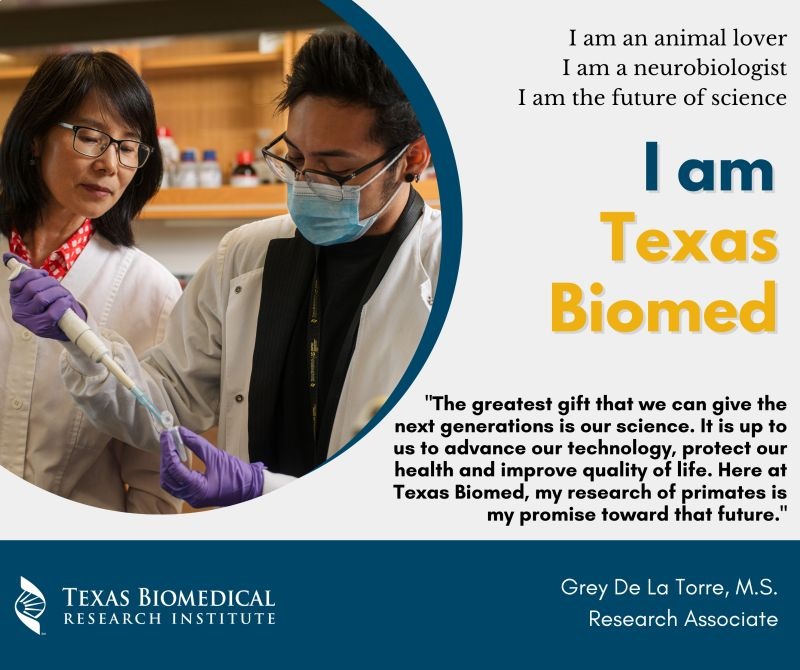
Texas Biomed launches social media series #IAmTexasBiomed, highlighting the people of Texas Biomed.
This edition showcases Grey De La Torre, M.S., from the Ling Lab!
Follow Texas Biomed on social media to follow the series.
Texas Biomed offers student Intership Program
July 30, 2024
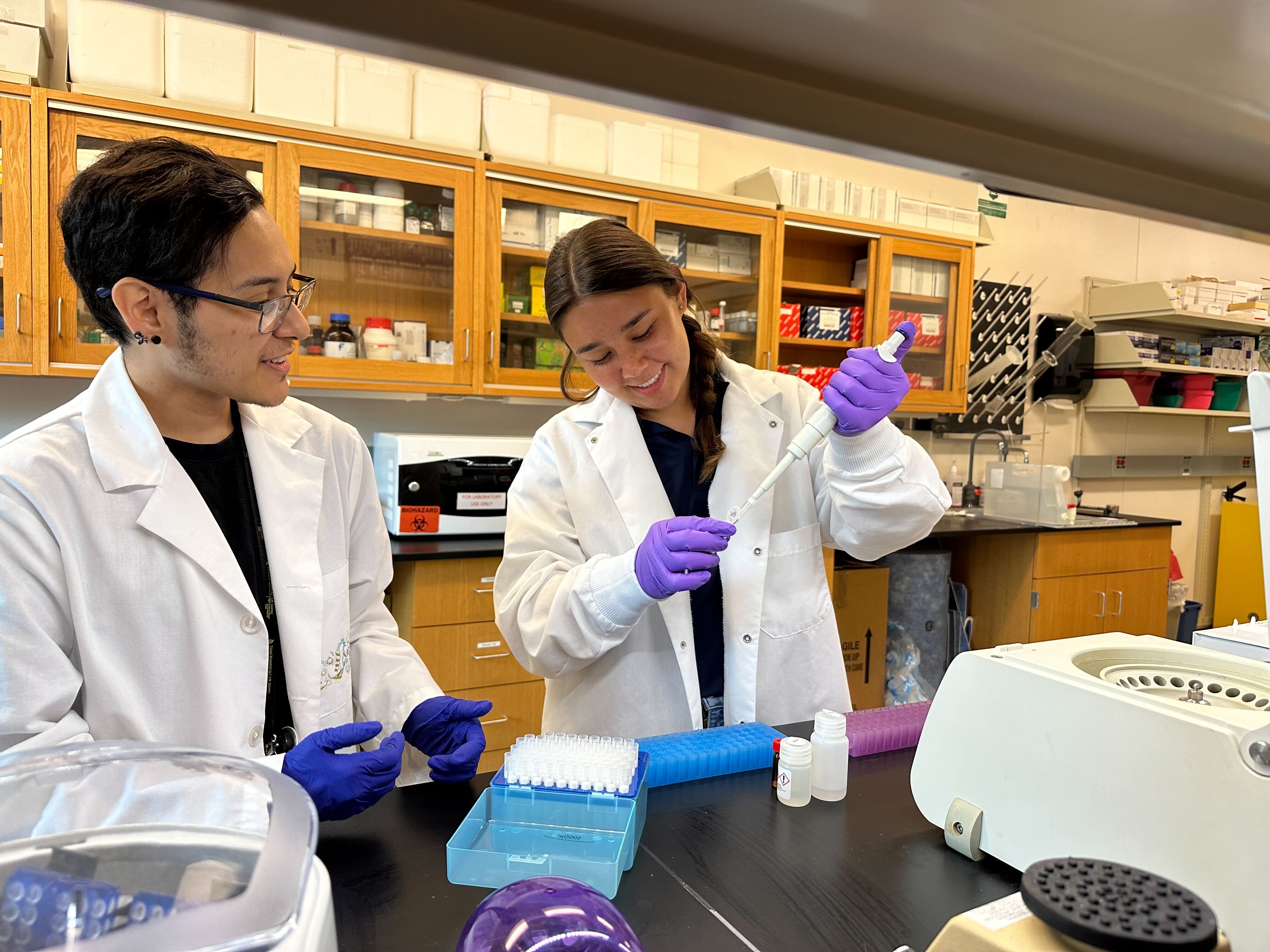 Texas Biomed’s annual summer internship program sees undergraduate and graduate students work alongside internationally recognized researchers. The 2024 Texas Biomed intern class represents national colleges and universities: UTSA, Our Lady of the Lake, Trinity University, Southern Methodist University, Texas A&M, UT Austin, University of Connecticut, Texas State, Colorado State, Kansas State and many more. This year, the Ling Lab welcomed summer scholar intern – Clara Moriarty, undergraduate at Trinity University in San Antonio.
Texas Biomed’s annual summer internship program sees undergraduate and graduate students work alongside internationally recognized researchers. The 2024 Texas Biomed intern class represents national colleges and universities: UTSA, Our Lady of the Lake, Trinity University, Southern Methodist University, Texas A&M, UT Austin, University of Connecticut, Texas State, Colorado State, Kansas State and many more. This year, the Ling Lab welcomed summer scholar intern – Clara Moriarty, undergraduate at Trinity University in San Antonio.
See full article.
The Texas Biomed Journal Club
April 15th, 2024
The Ling Lab's graduate student Whitney Ortiz presented at Texas Biomed's monthly Journal Club session on behalf of the Host-Pathogen Interactions Program.

Congratulations Inventors
February 6 2024

 Binhua “Julie” Ling, MD, PhD, and Fei Wu, a visiting PhD student
Binhua “Julie” Ling, MD, PhD, and Fei Wu, a visiting PhD student
Title of Invention (Computer Program): Meta-Transcriptome Detector (MTD) – a unique pipeline for host and meta-transcriptome joint and integrative analyses of RNA-seq data.
Promotion
January 1, 2024

Ling Lab's Grey De La Torre, M.Sc., was promoted from Senior Research Assistant to Research Associate!
Latest Publication on Science Translational Medicine
December 13, 2023
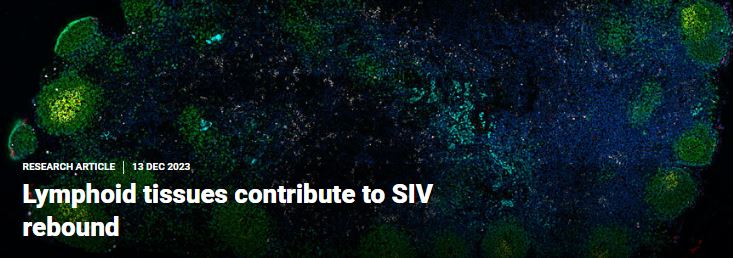 Dr. Ling's lab and collaborators publish research article "Lymphoid tissues contribute to plasma viral clonotypes early after antiretroviral therapy interruption in SIV-infected rhesus macaques" on Science Translational Medicine, and was featured on the cover page of the journal's online issue.
Dr. Ling's lab and collaborators publish research article "Lymphoid tissues contribute to plasma viral clonotypes early after antiretroviral therapy interruption in SIV-infected rhesus macaques" on Science Translational Medicine, and was featured on the cover page of the journal's online issue.
See: Science Translational Medicine | AAAS.
See also: Texas Biomed's News Feature
2023 Annual Vaccine Development Center of San Antonio Conference
November 9, 2023 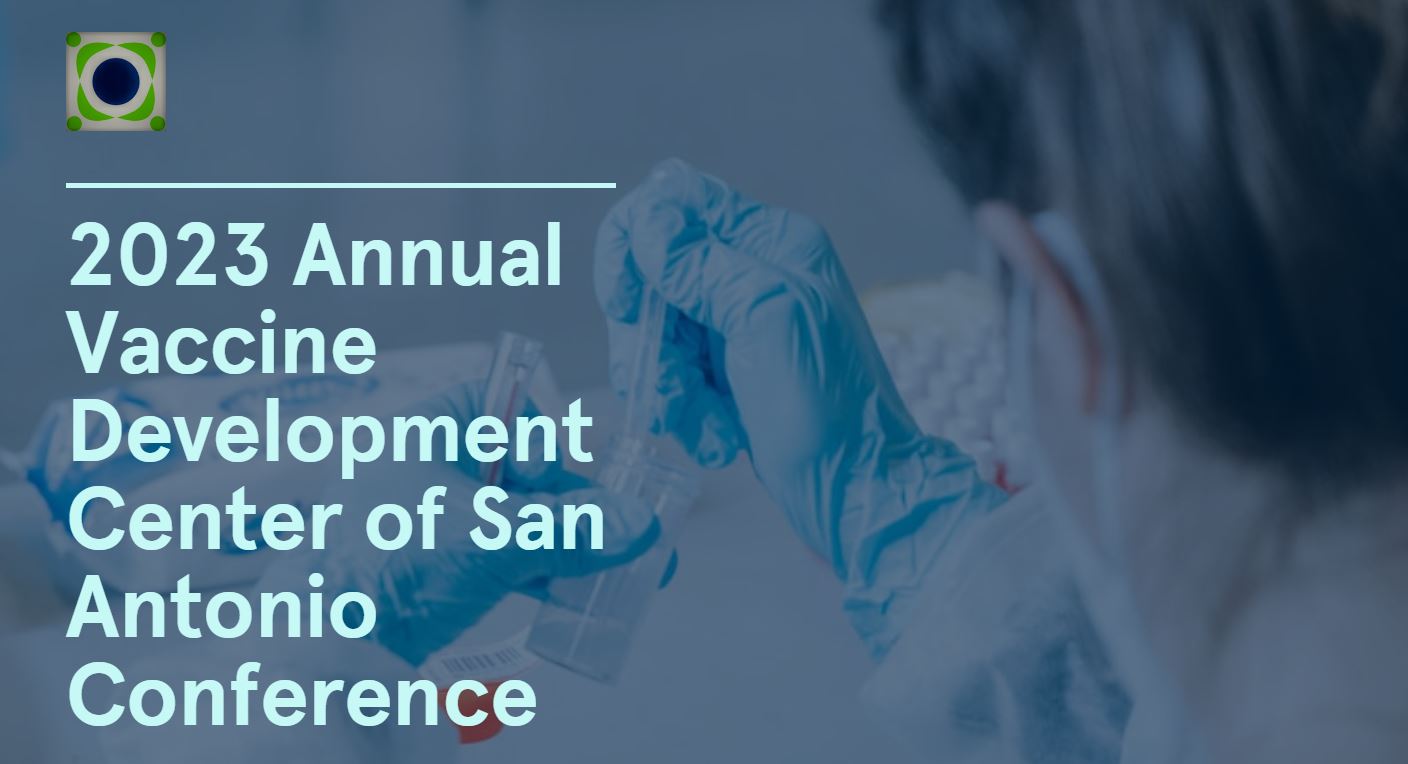
Ling Lab's doctoral student Whitney Ortiz was selected to participate in the poster session of the 11th annual Vaccine Development Center of San Antonio (VDCoSA) conference.
Visit the official website to learn more about the event's program.
The Texas Biomed Journal Club
October 16, 2023
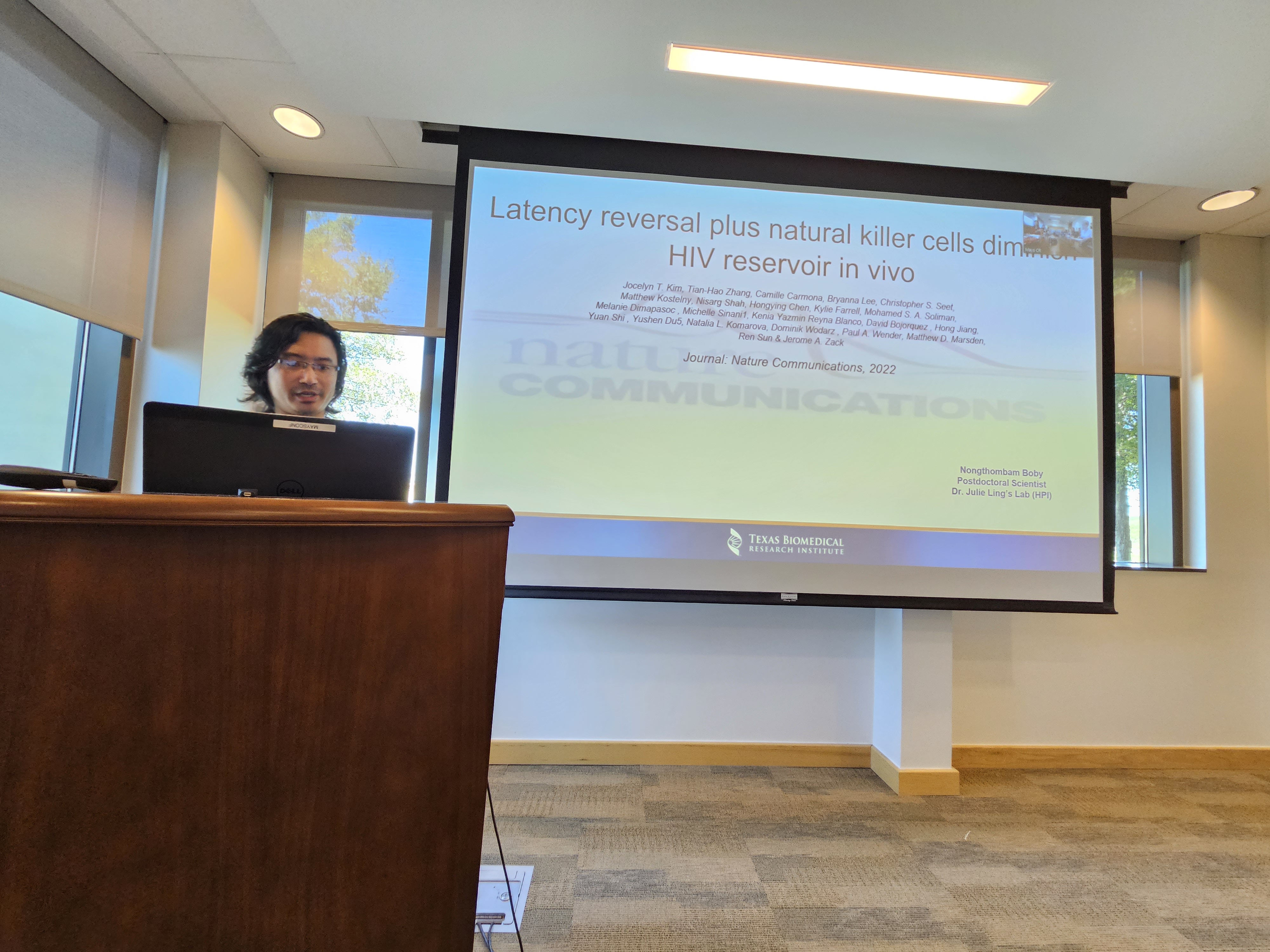 The Ling Lab's postdoctoral scientist Nongthombam Boby, DVM, Ph.D. presented at Texas Biomed's monthly Journal Club session on behalf of the Host-Pathogen Interactions Program.
The Ling Lab's postdoctoral scientist Nongthombam Boby, DVM, Ph.D. presented at Texas Biomed's monthly Journal Club session on behalf of the Host-Pathogen Interactions Program.
Promotion
September 26, 2023 
Ling Lab's Dr. Nongthombam Boby, DVM, Ph.D., was promoted from Postdoctoral Scientist 4 to Postdoctoral Scientist 5!
Antonio Solis-Leal, Ph.D. awarded 1st Place in category at Texas Biomed Research Symposium.
September 14th and 15th, 2023 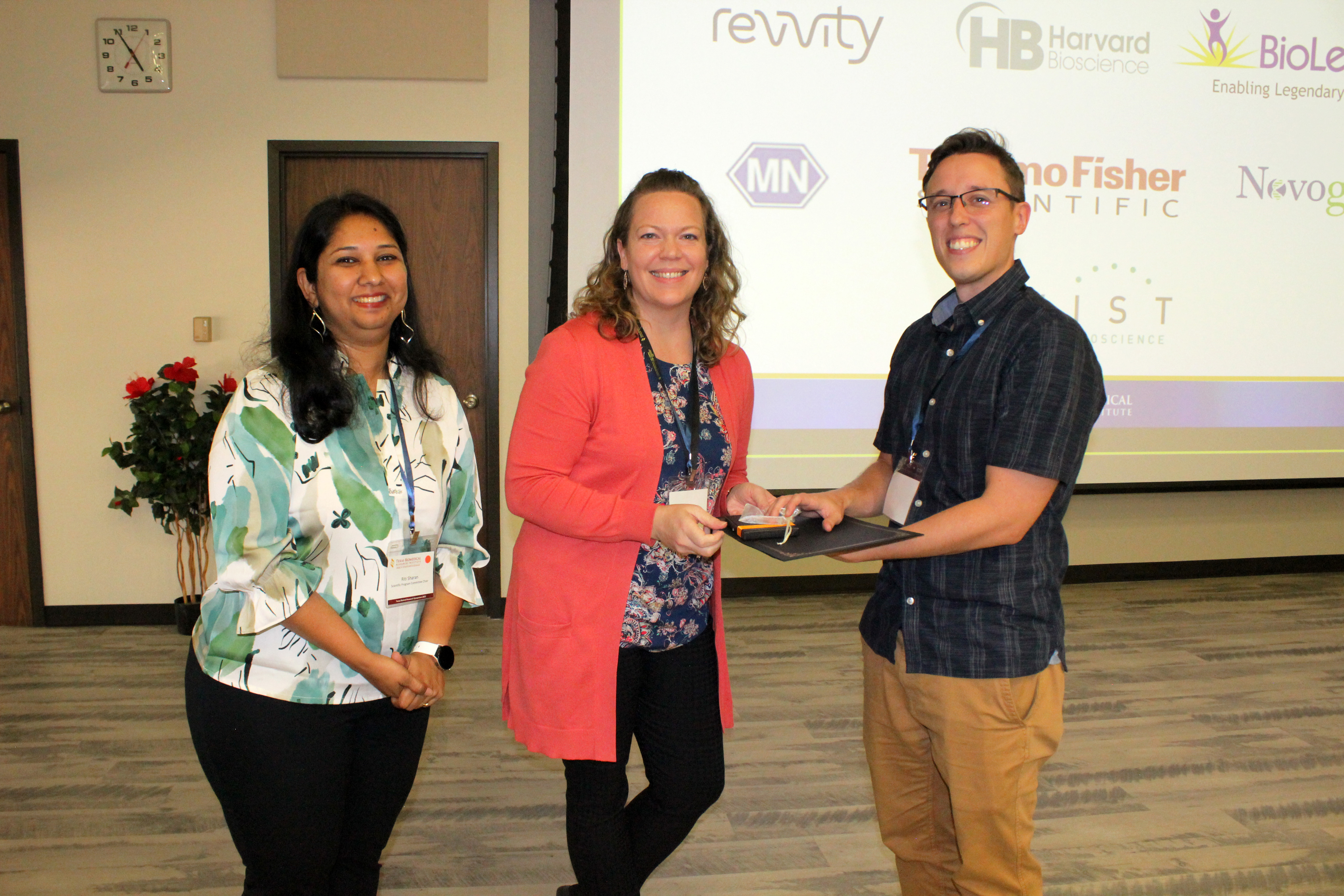
Ling Lab's postdoctoral scientist, Antonio Solis-Leal, Ph.D., participated at Texas Biomedical Research Institute's annual Research Symposium and was awarded first place for "Exemplary Short Talk" by a Postdoctoral Scientist.
Promotion
August 21, 2023 
Dr. Binhua (Julie) Ling, M.D., Ph.D. was promoted to Program Lead for the Host-Pathogen Interactions program!
Beyond the blood-brain barrier: HIV research at Texas Biomed gets NIH funding boost
July 27, 2022
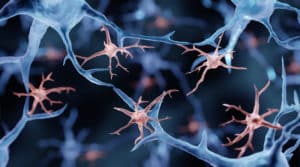
The $3.9 million grant supports research exploring how gene-editing technology may help eradicate HIV in the brain.
Finding a cure for HIV has been extremely difficult, in part because the virus hides from antiretroviral treatments in one of the hardest places to reach: the brain.
Texas Biomed Associate Professor Binhua “Julie” Ling, MD, PhD, and Temple University Professor Wenhui Hu, MD, PhD, will study whether they can find and eliminate the virus from infected brain cells using the latest gene-editing technology, CRISPR, combined with old-school virology.
New Tool Integrates Microbiome and Host Genetic Sequencing Analysis
May 5, 2022
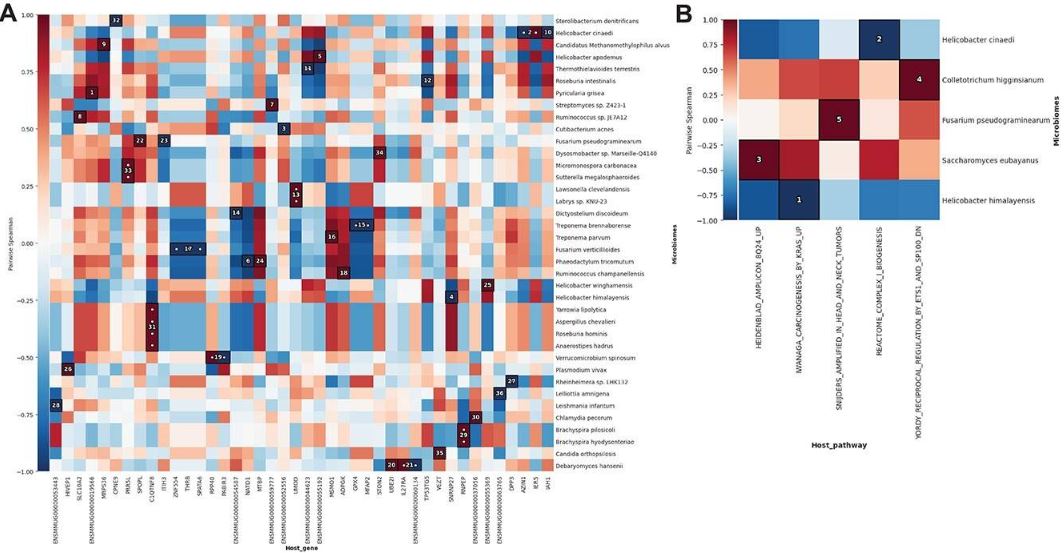 Researchers at Texas Biomedical Research Institute and Tulane University have developed a new software tool that makes it easier, faster and more cost effective to analyze genetic information about a host and its microbiome at the same time. The software, called “meta-transcriptome detector” (MTD), can be used by a wide range of microbiologists and drug developers, including those researching diseases such as certain cancers, COVID-19, HIV/AIDS, malaria and many other human health conditions linked to microorganisms.
Researchers at Texas Biomedical Research Institute and Tulane University have developed a new software tool that makes it easier, faster and more cost effective to analyze genetic information about a host and its microbiome at the same time. The software, called “meta-transcriptome detector” (MTD), can be used by a wide range of microbiologists and drug developers, including those researching diseases such as certain cancers, COVID-19, HIV/AIDS, malaria and many other human health conditions linked to microorganisms.
The tool was recently published in the journal Briefings in Bioinformatics.
